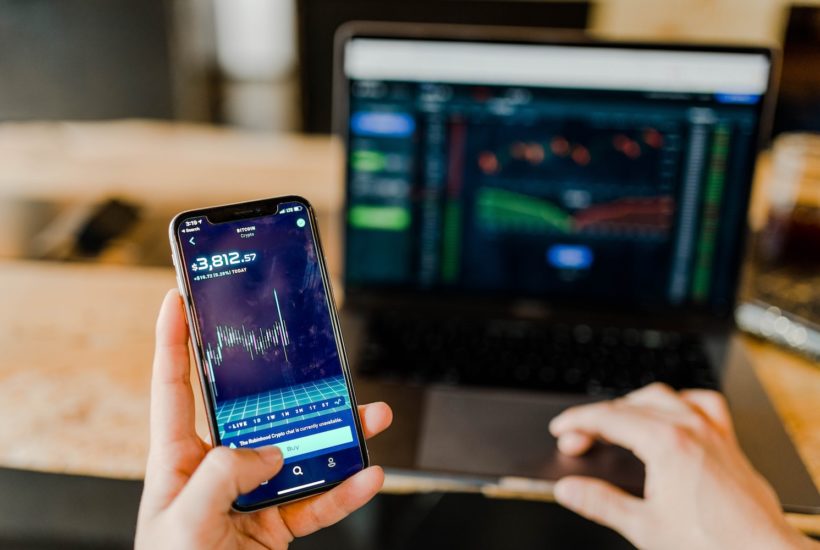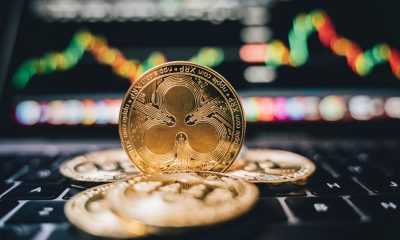Crypto
Ripple to take 100 million XRP out of escrow
Ripple has unlocked another 100 million XRP from its deposit portfolio. Ripple’s XRP holders could soon find themselves with a big sale due to the new funds available. XRP has been rising this week, but that may soon come to an end. Reactions to the unblocking were overwhelmingly negative. Many were not surprised that the team unlocked another batch of XRP tokens.

Every month, Ripple gets a fixed amount of 1 billion XRP transferred from its own trust to the official Ripple Wallet. The company is, therefore, free to sell, invest or return the XRP to the trust. For Ripple, the sale of its own XRP is currently the actual business model on which the entire company is based.
Born2Invest is a mobile application for crypto enthusiasts who want to find out the latest happenings in the sector, and the most important financial news. Our mobile application is a platform for the next generation of investors. We explore how cryptocurrencies and digital assets are contributing to the evolution of the global financial system.
Ripple continues to minimize its XRP sales
Nevertheless, Ripple has used relatively little XRP from the trust for investments and sales in recent months. This is mainly due to pressure from the community, which is not at all pleased about the additional selling pressure and the associated falling of XRP price.
Just in time for March 1st, 1 billion XRP with a value of approximately $230 million was transferred from the Escrow Wallet to the Ripple Escrow Wallet. This process will probably no longer surprise anyone, as it is repeated month after month. In 2019, Ripple still used a large part of XRP to invest in start-ups, looking for further use cases for XRP or to sell OTC (Over-The-Counter) directly.
The XRP price is pushed down by the growing amount available on the market
This automatically leads to an increase in the total amount on the public market, thus pushing the XRP price down. The community did not want to put up with this any longer, probably also due to the XRP price slump of more than 50% in 2019, and the company reacted to this and said in a quarterly report that sales would be minimized for the time being. In fact, no more XRP was used by Ripple from Escrow the following month. But what is the situation this month?
Currently, a total of 900 million XRP has been transferred back to the escrow and locked for 55 months. Thus, 100 million XRP are still outstanding, which currently have an equivalent value of approximately $23 million. It is hard to find out what will happen with this until the next quarterly report from Ripple, but it looks like they will either be sold directly or invested. It is currently still unclear to whom the money will flow to.
XRP use case no influence on the price and dependence on Bitcoin
It has also been no secret that Ripple’s business model is based on sales of its own XRP. Overall, Ripple owns more than 55% of all XRP and will try to throw them on the market step by step. Every investor should be aware of this.
This selling pressure must also be balanced out first. The sales have no direct influence on the price, but will certainly have a negative effect in the long term. Even the increased use of XRP within On-Demand Liquidity (ODL) in 2019 could not bring the price up. The price of XRP, like any other Altcoin, depends on the Bitcoin price performance.
Ripple to continue to sell its XRP
Therefore, investors take higher risks if the actual use case has not had a positive impact on the price of XRP so far and if they are dependent on another asset.
This can, of course, change in the future, but investors should not rely on that. Furthermore, Ripple will continue to sell its XRP. All those involved with the industry are nevertheless curious whether Ripple can do well in the payment industry with its payment solutions, and especially with XRP, and how the share price will react to this.
__
(Featured image by Austin Distel via Unsplash)
DISCLAIMER: This article was written by a third party contributor and does not reflect the opinion of Born2Invest, its management, staff or its associates. Please review our disclaimer for more information.
This article may include forward-looking statements. These forward-looking statements generally are identified by the words “believe,” “project,” “estimate,” “become,” “plan,” “will,” and similar expressions. These forward-looking statements involve known and unknown risks as well as uncertainties, including those discussed in the following cautionary statements and elsewhere in this article and on this site. Although the Company may believe that its expectations are based on reasonable assumptions, the actual results that the Company may achieve may differ materially from any forward-looking statements, which reflect the opinions of the management of the Company only as of the date hereof. Additionally, please make sure to read these important disclosures.
First published in CRYPTO MONDAY, a third-party contributor translated and adapted the article from the original. In case of discrepancy, the original will prevail.
Although we made reasonable efforts to provide accurate translations, some parts may be incorrect. Born2Invest assumes no responsibility for errors, omissions or ambiguities in the translations provided on this website. Any person or entity relying on translated content does so at their own risk. Born2Invest is not responsible for losses caused by such reliance on the accuracy or reliability of translated information. If you wish to report an error or inaccuracy in the translation, we encourage you to contact us.

-

 Biotech1 week ago
Biotech1 week agoEcnoglutide Shows Promise as Next-Generation Obesity Treatment
-

 Markets2 weeks ago
Markets2 weeks agoCocoa Prices Drop Amid Speculative Selling and West African Supply Concerns
-

 Business5 days ago
Business5 days agoThe TopRanked.io Weekly Digest: What’s Hot in Affiliate Marketing [PureVPN Affiliates Review]
-

 Cannabis2 weeks ago
Cannabis2 weeks agoIs Aurora Cannabis Stock a Risk Worth Taking?























